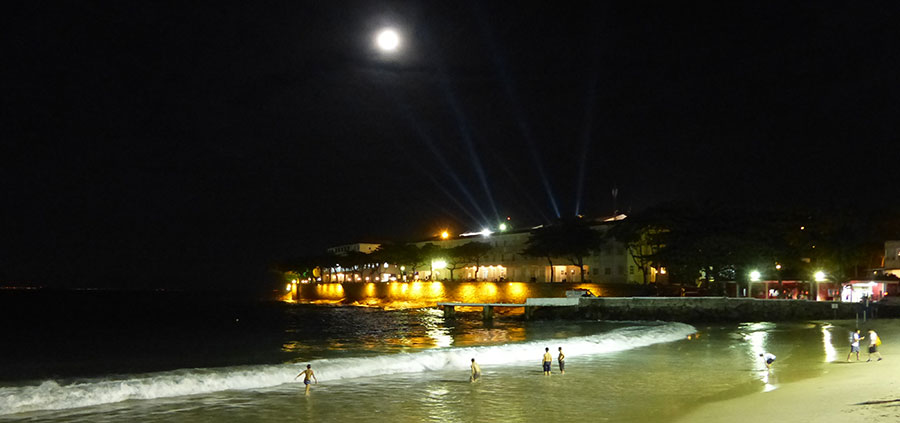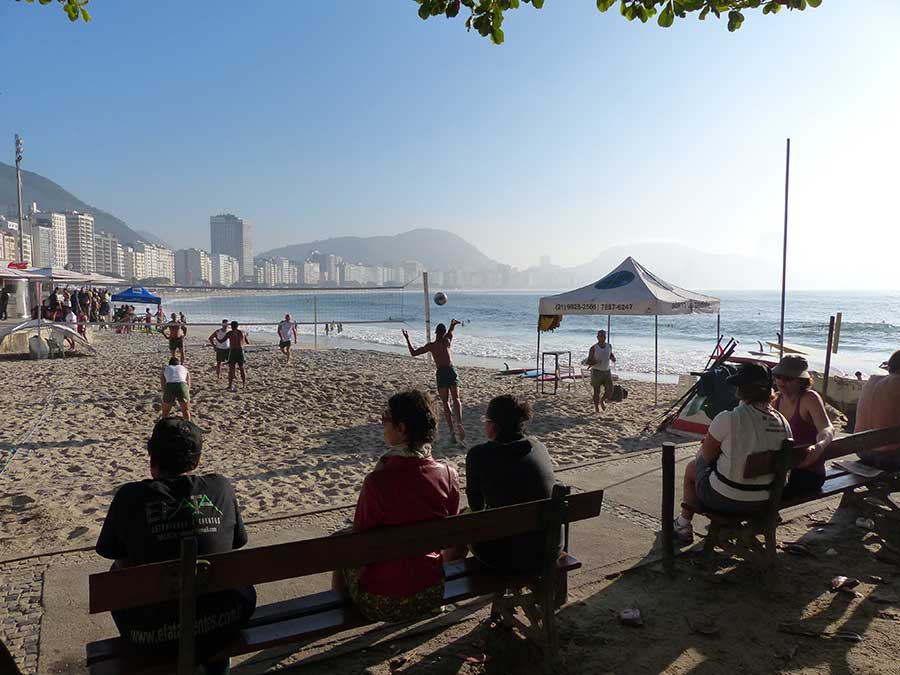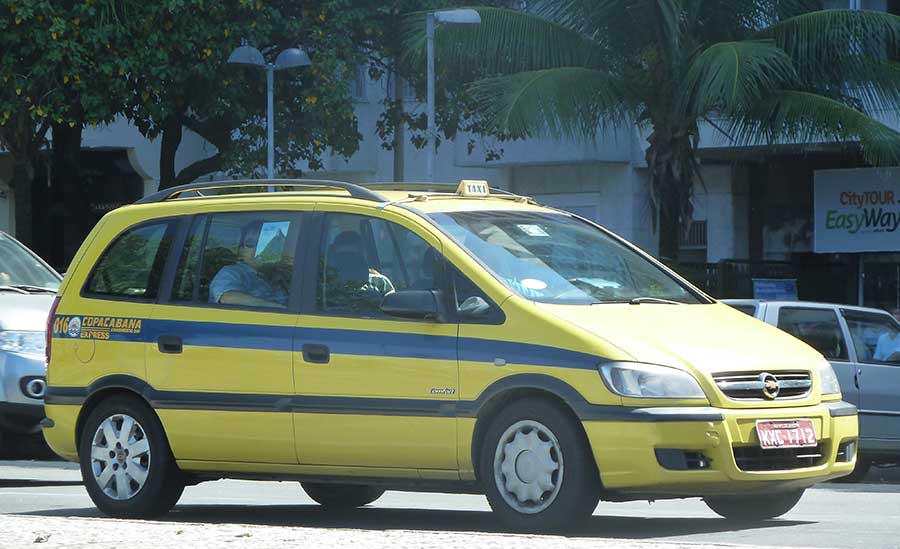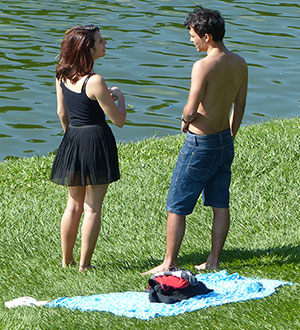What to Know When Traveling to Rio de Janeiro?
Planning a trip to Rio de Janeiro? Get ready to embark on an unforgettable journey filled with vibrant culture, breathtaking landscapes, and exhilarating experiences. As one of the most iconic cities in the world, Rio de Janeiro offers a unique blend of natural beauty and urban charm.
From the iconic Christ the Redeemer statue standing tall on Corcovado Mountain to the stunning beaches of Copacabana and Ipanema, there is no shortage of sights to explore. But before you embark on your adventure, it’s essential to arm yourself with some key knowledge to ensure a smooth and enjoyable trip.
In this guide, we will cover everything you need to know when traveling to Rio de Janeiro, including the best time to visit, top attractions to see, safety tips, and insider advice to make the most of your time in this captivating Brazilian city. So, let’s dive in and uncover the secrets of Rio de Janeiro!

Planning your trip to Rio de Janeiro

Rio de Janeiro is a city that offers something for everyone, from stunning natural beauty to vibrant cultural experiences. To make the most of your trip, it’s important to plan ahead and consider a few key factors.
First, decide on the duration of your trip. Rio de Janeiro has so much to offer that you may want to stay for at least a week to explore all the attractions and immerse yourself in the local culture. Next, consider your budget and start researching flights and accommodations. Rio de Janeiro has a wide range of options, from luxury hotels to budget-friendly hostels, so you can find something that suits your preferences and wallet.
When it comes to packing, make sure to bring comfortable clothing and footwear, as you’ll be doing a lot of walking and exploring. Don’t forget to pack sunscreen, a hat, and insect repellent, as the Brazilian sun can be intense, and mosquitoes can be common in certain areas. It’s also a good idea to bring a universal power adapter, as the electrical outlets in Brazil may be different from what you’re used to.
Finally, consider learning a few basic Portuguese phrases. While many people in Rio de Janeiro speak English, knowing a few local phrases can go a long way in enhancing your interactions and showing respect for the local culture.
Best Time to Visit Rio de Janeiro

Rio de Janeiro is a city that can be visited all year round, but there are certain times when the weather is more favorable and the city is bustling with events and festivals. The summer months of December to March are the peak tourist season in Rio de Janeiro, with warm temperatures and plenty of sunshine. However, keep in mind that this is also the rainy season, so be prepared for occasional showers.
If you prefer to avoid the crowds and enjoy more mild weather, consider visiting Rio de Janeiro during the shoulder seasons of April to May or September to November. During these months, the city is less crowded, and the weather is still pleasant for outdoor activities.
It’s worth noting that Rio de Janeiro hosts some of the biggest events and festivals in Brazil, such as Carnival and New Year’s Eve celebrations. If you’re interested in experiencing these vibrant festivities, make sure to plan your trip accordingly and book accommodations well in advance, as prices tend to skyrocket during these periods.
Top Attractions in Rio de Janeiro

Rio de Janeiro is a city that never fails to impress with its stunning attractions. Here are some of the must-see sights that should be on your itinerary:
- Christ the Redeemer: Standing tall at the top of Corcovado Mountain, the iconic statue of Christ the Redeemer is not only a symbol of Rio de Janeiro but also one of the Seven Wonders of the World. Take a scenic train ride or a van to reach the summit and marvel at the breathtaking panoramic views of the city.
- Sugarloaf Mountain: Another must-visit attraction in Rio de Janeiro is Sugarloaf Mountain, which offers panoramic views of the city and its coastline. Take a cable car ride to the top and be prepared to be amazed by the beauty of Rio de Janeiro from above.
- Copacabana Beach: No trip to Rio de Janeiro is complete without a visit to Copacabana Beach. This world-famous beach stretches for 4 kilometers and is known for its golden sands and vibrant atmosphere. Take a stroll along the promenade, soak up the sun, or enjoy a refreshing caipirinha at one of the beachside kiosks.
- Ipanema Beach: Just a short distance from Copacabana, Ipanema Beach is another popular destination for beachgoers. Known for its stunning sunsets and lively beach scene, Ipanema offers a more upscale and trendy atmosphere. Don’t forget to try the refreshing coconut water served by beach vendors.
- Tijuca National Park: For nature lovers, a visit to Tijuca National Park is a must. This urban rainforest is the largest of its kind in the world and offers a wide range of outdoor activities, such as hiking, biking, and birdwatching. Be sure to visit the beautiful Cascatinha Waterfall and the Mayrink Chapel, nestled within the park.
Safety Tips for Traveling to Rio de Janeiro

Like any major city, Rio de Janeiro has its share of safety concerns. While it’s important to be aware of your surroundings and take precautions, with some common sense and preparation, you can have a safe and enjoyable trip to Rio de Janeiro.
- Stay in tourist-friendly areas: Stick to well-known tourist areas and avoid venturing into unfamiliar neighborhoods, especially at night. Areas such as Copacabana, Ipanema, and Leblon are generally considered safe for tourists.
- Be cautious with your belongings: Petty theft can be a problem in crowded areas, so keep an eye on your belongings at all times. Avoid carrying large sums of cash or wearing flashy jewelry that might attract unwanted attention.
- Use official transportation: When getting around the city, it’s best to use official taxis or ride-sharing services like Uber. Avoid taking unmarked taxis or accepting rides from strangers.
- Avoid street demonstrations: Rio de Janeiro is known for its passionate demonstrations and protests. While these events are generally peaceful, it’s best to avoid getting caught up in them to prevent any potential risks.
- Respect local customs: Show respect for the local culture and customs. Avoid wearing expensive jewelry or displaying wealth, as it may make you a target for theft. Dress modestly when visiting churches or religious sites, and always ask for permission before taking photos of locals.
By following these safety tips and staying vigilant, you can minimize any potential risks and enjoy your time in Rio de Janeiro to the fullest.
Getting Around in Rio de Janeiro

Rio de Janeiro has a well-developed transportation system that makes it relatively easy to get around the city. Here are some options for getting from one place to another:
- Metro: The metro system in Rio de Janeiro is efficient, safe, and a cost-effective way to navigate the city. It operates from 5 am to midnight and connects major tourist areas, including Ipanema, Copacabana, and the city center.
- Buses: Rio de Janeiro has an extensive bus network that covers almost every corner of the city. While buses can be crowded and slower during peak hours, they are a convenient way to reach attractions that are not well-served by the metro.
- Taxis and ride-sharing services: Taxis are widely available in Rio de Janeiro, and you can easily hail one on the street or find them at designated taxi stands. Alternatively, you can use ride-sharing services like Uber, which are popular and often more affordable than traditional taxis.
- Walking: Rio de Janeiro is a walkable city, especially in popular tourist areas like Copacabana and Ipanema. Walking allows you to soak in the vibrant atmosphere and discover hidden gems along the way. Just be cautious and use common sense, especially at night.
Must-Try Food and Drinks in Rio de Janeiro
No trip to Rio de Janeiro is complete without indulging in the city’s vibrant culinary scene. Here are some must-try food and drinks that will tantalize your taste buds:
- Feijoada: Considered the national dish of Brazil, feijoada is a hearty black bean stew made with various cuts of pork, beef, and sausages. It’s traditionally served with rice, collard greens, farofa (toasted manioc flour), and orange slices.
- Caipirinha: Brazil’s national cocktail, the caipirinha, is a refreshing mix of cachaça (a sugarcane spirit), lime, sugar, and ice. It’s the perfect drink to sip while relaxing on the beach or enjoying a night out in Rio de Janeiro.
- Pão de Queijo: These small, cheese-filled bread rolls are a popular snack in Brazil. Made with tapioca flour and cheese, pão de queijo is crispy on the outside and soft and chewy on the inside. They make a great on-the-go snack or breakfast option.
- Açaí: Originating from the Amazon rainforest, açaí is a superfood smoothie made from frozen açaí berries. It’s commonly topped with granola, sliced fruits, and honey, creating a delicious and nutritious treat.
- Churrasco: Brazil is famous for its churrasco, a barbecue-style feast of various meats, including beef, pork, chicken, and sausages. The meat is typically seasoned with rock salt and cooked on skewers over an open fire, resulting in tender and flavorful cuts.
These are just a few highlights of the rich and diverse culinary scene in Rio de Janeiro. Don’t be afraid to explore local markets, street food stalls, and restaurants to discover even more delicious dishes.
Cultural Etiquette in Rio de Janeiro

When visiting Rio de Janeiro, it’s important to respect the local culture and customs. Here are a few tips to help you navigate the cultural etiquette:
- Greeting: Brazilians are known for their warm and friendly nature. When greeting someone, use a firm handshake and maintain eye contact. It’s also common to exchange kisses on the cheeks, even between men, as a sign of friendship.
- Personal space: Brazilians have a more relaxed concept of personal space compared to some other cultures. Don’t be surprised if people stand closer to you during conversations or touch your arm while speaking. It’s a sign of friendliness and engagement.
- Time: Brazilians have a more relaxed attitude towards punctuality. It’s not uncommon for social events or meetings to start a bit later than scheduled. However, it’s still important to be respectful and arrive on time for business-related appointments.
- Dress code: Brazilians generally dress casually, especially in beach areas like Copacabana and Ipanema. However, when visiting religious sites or upscale restaurants, it’s best to dress more formally.
- Tipping: Tipping is not mandatory in Brazil, but it’s appreciated for good service. In restaurants, a service charge is often included in the bill, but you can leave a small additional tip if you wish. For other services, such as taxis or hotel staff, a small tip is also appreciated.
By showing respect for the local customs and embracing the warm and friendly nature of the locals, you’ll be able to immerse yourself in the vibrant culture of Rio de Janeiro.
Shopping in Rio de Janeiro
Rio de Janeiro offers a wide range of shopping opportunities, from bustling street markets to upscale shopping malls. Here are some of the best places to shop in the city:
- Rua do Lavradio: Located in the historical neighborhood of Lapa, Rua do Lavradio is home to the Feira Rio Antigo, a monthly street market where you can find antiques, vintage clothing, handmade crafts, and local artwork. It’s a great place to explore and discover unique souvenirs.
- Rua Visconde de Pirajá: Situated in the trendy neighborhood of Ipanema, Rua Visconde de Pirajá is lined with a variety of shops, boutiques, and international brands. Whether you’re looking for designer clothing, beachwear, or jewelry, you’ll find it here.
- Feira Hippie de Ipanema: Every Sunday, the Feira Hippie de Ipanema takes place in Praça General Osório, offering a vast selection of handicrafts, artwork, clothing, and accessories. It’s a great place to find unique and locally made souvenirs.
- Shopping Leblon: Located in the upscale neighborhood of Leblon, Shopping Leblon is a high-end shopping mall that houses a variety of luxury brands, designer boutiques, and international stores. It also offers a selection of restaurants and a cinema.
- Saara: For a unique shopping experience, head to Saara, Rio de Janeiro’s largest street market located in the city center. Here, you’ll find a wide range of products, including clothing, accessories, electronics, and household items, at affordable prices.
Remember to practice your bargaining skills when shopping at street markets, as it’s common to negotiate prices. Also, keep in mind that many shops in Rio de Janeiro close for a few hours in the afternoon for siesta, so plan your shopping accordingly.
Recommended Accommodations in Rio de Janeiro
Rio de Janeiro offers a wide range of accommodations to suit every budget and preference. Here are some recommended options:
- Belmond Copacabana Palace: For a luxurious stay, the Belmond Copacabana Palace is a landmark hotel located on Copacabana Beach. It offers elegant rooms, a rooftop pool, a spa, and stunning views of the ocean.
- Hotel Fasano Rio de Janeiro: Situated in Ipanema, the Hotel Fasano Rio de Janeiro is a stylish boutique hotel known for its sophisticated design and impeccable service. It features a rooftop pool, a spa, and a renowned Italian restaurant.
- Arena Leme Hotel: Located in the quieter neighborhood of Leme, the Arena Leme Hotel offers comfortable rooms with ocean views and easy access to Copacabana Beach. It also has a rooftop pool and a fitness center.
- El Misti Hostel: For budget travelers, El Misti Hostel is a popular option with several locations in Rio de Janeiro, including Copacabana and Ipanema.